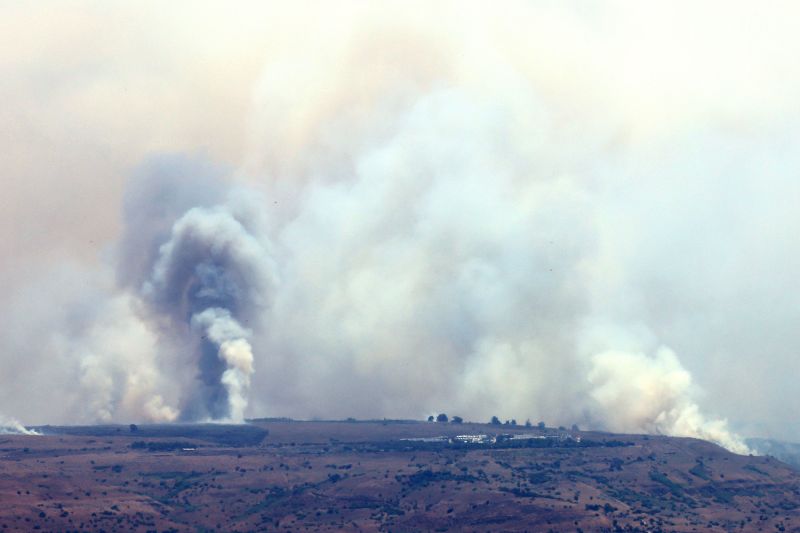In an escalating wave of violence, Hezbollah, the militant organization based in Lebanon, has retaliated against Israel by firing more than 200 missiles at various Israeli targets. The response comes after the reported death of a high-ranking Hezbollah commander, which the group attributes to Israeli forces.
The situation lent itself to chaos and destruction as Hezbollah resorted to aggressive measures to vent its frustrations and retaliation for the death of its commander. The barrage of missiles into Israeli territory marked an alarming escalation in the tensions between Hezbollah and Israel, adding a new layer of hostility to an already volatile situation.
The missiles launched by Hezbollah were reportedly targeting military bases and strategic locations within Israel. The vast number of missiles launched illustrates the degree of angst and determination of Hezbollah to exert revenge. The act, moreover, indicates a calculated risk undertaken by Hezbollah, well aware of Israel’s superior warfare capabilities.
The Israeli defense forces immediately activated their much-lauded missile defense system, Iron Dome, to intercept the incoming threats. The Iron Dome, a comprehensive air-defense system developed by Israel’s Rafael Advanced Defense Systems, is known for its sophistication and reliability in missile interception. The system played a significant role in protecting Israeli territories and people from potential devastating impacts. Despite its effectiveness, with the sheer number of missiles fired, some did fall on Israeli land causing damage and raising fears amongst the locals.
The Israeli response to this aggression was swift and potentially more damaging. In a series of retaliatory attacks, Israeli forces reportedly targeted suspected Hezbollah outposts and supply lines in Lebanon. The swift and intense counterattacks can be regarded as a stern warning from Israel to deter any future endeavors of Hezbollah of similar nature.
The escalating violence between the two sides attracted global attention and concern. The United Nations, European Union, and other international organizations called for immediate de-escalation and launched diplomatic petitiions urging both sides to restrain their aggression and address issues in a peaceful manner.
The unprecedented attack by Hezbollah has far-reaching implications. It indicates that the group is willing to engage in large-scale and potentially catastrophic confrontational tactics against Israel following the killing of its commander. This incident highlights the laboratory of hatred and revenge that drives such unfortunate situations in the middle east, causing further suffering and loss of human lives.
With this development in The Lebanese-Israeli conflict, a dangerous precedent has been set. The increased hostility between the two sides has effectively ensured that the region remains embroiled in turmoil for much longer. Peace and diplomacy seem to be distant options, as the cycle of violence continues to turn. The need for an immediate and resourceful peaceful resolution cannot be overstated.
In the aftermath of this missile attack, there is a tense impasse left behind, with both Lebanon’s Hezbollah and Israel asserting their rights to defend their territories and interests. The growing animosity does not promise any quick solutions but ensures a continuation of this long, complex, and costly conflict.




